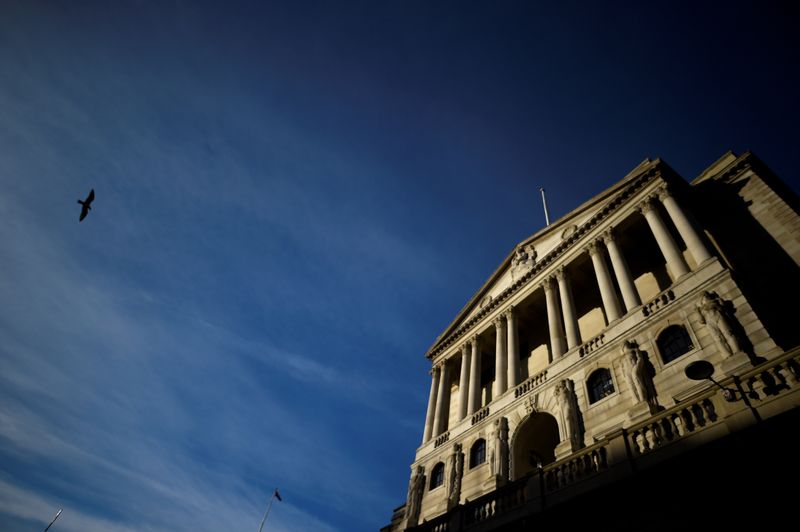By Huw Jones
LONDON (Reuters) - The Bank of England warned on Thursday that it could force banks and insurers to hold more capital or use other "supervisory tools" as market momentum for ditching the tarnished Libor interest rate benchmark shows signs of flagging.
Ditching Libor, a 50-year-old price reference once dubbed the world's most important number and still embedded in loans from mortgages to credit cards worth $400 trillion globally, is one of the biggest challenges markets have faced in decades.
Banks were fined around $9 billion for trying to rig Libor and regulators say it must be scrapped by the end of 2021 because it is based on too few transactions.
Five heads of supervision from the BoE and the Financial Conduct Authority reiterated to senior managers of firms they regulate that the London Interbank Offered Rate will cease to exist in two years' time, and that no firm should plan otherwise.
"The Financial Policy Committee (FPC) will keep the potential use of supervisory tools under review in light of transition progress made by firms," the supervisors said in their letter, which was made public.
The BoE committee looks for threats to financial stability, and said in December that continued reliance on Libor poses risks.
The BoE declined to say on Thursday which tools the FPC could use. It has several powers, including ordering firms to hold more capital or imposing tougher caps on leverage if they present risks not adequately covered by existing buffers.
The regulators reiterated that firms must stop issuing loans linked to Libor by the third quarter of this year, and also encouraged market makers to switch the convention for sterling interest rate swaps from Libor to the replacement rate Sonia, compiled by the BoE, by March 2.
The BoE said in December that progress in moving sterling swaps from Libor to Sonia "appears to have plateaued", with more work needed to establish a Sonia-based loans market.
Market analytics firm Clarus said on Tuesday there is no evidence of a reduction in sterling Libor swaps trading, not even for those that mature beyond 2021.
Industry sources told Reuters on Monday that many banks in Britain are unlikely to meet the October deadline to stop writing loans tied to Libor.
Regulators have told firms to present plans for ending the use of Libor and they said on Thursday these are now being scrutinised.
"It will also be a key input to the FPC’s consideration in mid-2020 of whether sufficient progress is being made to avoid seeking recourse to supervisory tools," the letter said.
